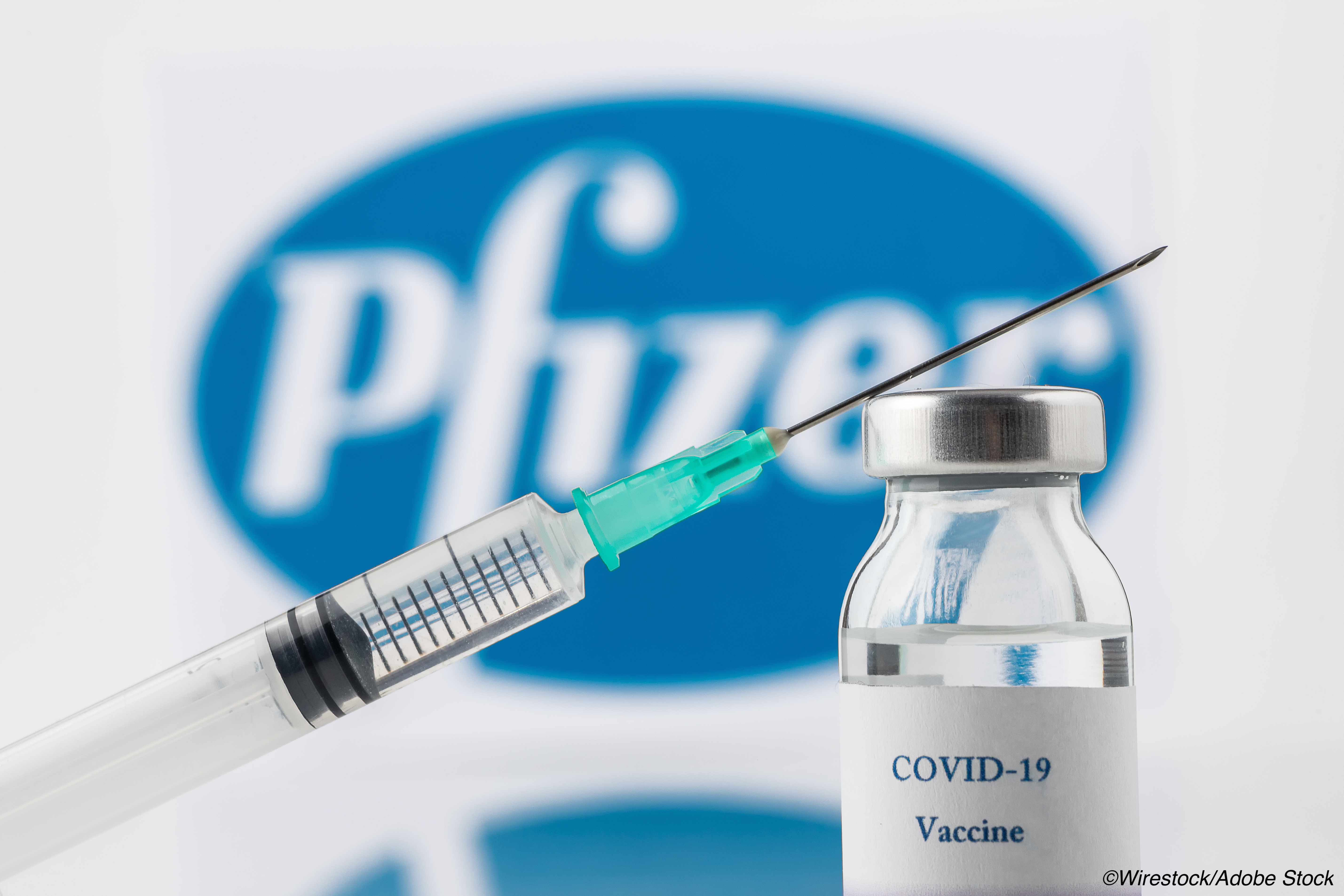
The mRNA Pfizer-BioNTech Covid-19 vaccine, BNT162b2, showed efficacy similar to that reported in clinical trials in real-world, nationwide data from Israel, with two doses of the vaccine providing more than 95% protection against infection, hospitalization and death.
National surveillance data from the first four months of a comprehensive vaccination campaign in the country confirmed the vaccine’s very high efficacy in all age groups, including the high-risk elderly.
A single dose of the vaccine conveyed 58% protection against infection, 76% protection against hospitalization and 77% protection against death in all those vaccinated. And, during the vaccination and follow-up period, 95% of tested specimens involved the B.1.1.7 variant of SARS-CoV-2–vaccine efficacy against the B.1.351 variant, first identified in South Africa, could not be assessed in the study population because of the small number of infections involving the variant at the time.
The study findings, published online May 5 in The Lancet, represent the most comprehensive national observational assessment of the real-world effectiveness of a Covid -19 vaccine to date.
Researcher Sharon Alroy-Preis, MD, of the Israel Ministry of Health, noted in a press statement that Israel provides a unique early opportunity to examine the effectiveness of the BNT162b2 mRNA vaccine given that it is the country with the highest proportion of residents vaccinated against Covid-19.
“Until this point, no country in the world has described the national public health impact of a nationwide Covid-19 vaccination campaign,” she said. “These insights are hugely important because, while there are still some considerable challenges to overcome, they offer real hope that Covid-19 vaccination will eventually enable us to control the pandemic.”
The period of analysis ran from Jan. 24 to April 3 of this year, during which time a total of 232,268 SARS-CoV-2 infections were reported in Israel, along with 7,694 hospitalizations, 4,481 severe or critical hospitalizations, and 1,113 deaths from Covid-19 in people age 16 years or older.
The researchers used national pandemic surveillance data recorded by the Israel Ministry of Health to assess vaccine efficacy estimates against the key outcomes of infection, hospitalization and death. Vaccinations with the mRNA vaccine began during a surge of infections that represented Israel’s third and largest wave of Covid-19 illness. The surge led to a national lock down in late December of 2020, and daily infections peaked at just over 10,200 cases by Jan. 20 of this year.
By April 3 of this year, 72% of the population had received two doses of the BNT162b2- vaccine, including 90% of people over the age of 65 years.
Among the main study findings:
- Adjusted estimates of vaccine efficacy against SARS-CoV-2 infection at seven days or longer after the second dose were 95.3% (95% CI 94.9–95.7; incidence rate 91.5 per 100,000 person-days in unvaccinated versus 3.1 per 100,000 person-days in fully vaccinated individuals).
- Vaccine efficacy was 91.5% (95% CI, 90.7–92.2; 40.9 vs 1.8 per 100,000 person-days) against asymptomatic SARS-CoV-2 infection, 97.0% (95% CI, 96.7–97.2; 32.5 vs 0.8 per 100,000 person-days) against symptomatic Covid-19; 97.2% (95% CI, 96.8–97.5; 4.6 vs 0.3 per 100,000 person-days) against Covid-19-related hospitalization; 97.5% (95% CI, 97.1–97.8; 2.7 vs 0.2 per 100,000 person-days) against severe or critical Covid-19-related hospitalization; and 96.7% (95% CI, 96.0–97.3; 0.6 vs 0.1 per 100,000 person-days) against Covid-19-related death.
- In all age groups, as vaccine coverage increased, the incidence of SARS-CoV-2 outcomes declined.
- A total of 8,006 of 8,472 samples tested showed a spike gene target failure, giving an estimated prevalence of the B.1.1.7 variant of 94.5% among SARS-CoV-2 infections.
Protection among the elderly proved to be similar to that observed in younger vaccine recipients, with 97% protection against death and 96.9% protection against hospitalization observed in people over 85 years of age within seven days of receiving the second dose.
In commentary published with the study, Eyal Leshem of Tel Aviv University and Annelies Wilder-Smith of the London School of Hygiene & Tropical Medicine noted that the timing of Israel’s vaccine campaign and the almost universal vaccination of among the vaccine-eligible population “provided a robust platform on which to examine vaccine effectiveness and the impact of high vaccine coverage in real-life conditions at a national level.”
The findings, they wrote, “suggest that high vaccine coverage rates could offer a way out of the pandemic.”
“Regrettably, rapid population level coverage cannot be easily replicated in many other countries,” they added. “The global use of the BNT162b2 vaccine is limited by supply issues, high costs, and ultra-cold chain storage requirements. Global Covid-19 vaccine roll-out has been sluggish, and vaccine distribution in inequitable despite the achievements of [World Health Organization] COVAX, mainly due to the lack of adequate manufacturing scalability. Rapid expansion of deployment of other effective vaccines with more achievable cold chain storage requirements remains an urgent global priority.”
They concluded that key research priorities must include the “timely reporting of vaccine effectiveness against variants of concern, the duration of protection across age groups and geographical settings, and the effectiveness of alternative dosing regimens.”
- The mRNA Pfizer-BioNTech Covid-19 vaccine, BNT162b2, showed efficacy similar to that reported in clinical trials in real-world, nationwide data from Israel, with two doses of the vaccine providing more than 95% protection against infection, hospitalization and death.
- Protection among the elderly proved to be similar to that observed in younger vaccine recipients, with 97% protection against death and 96.9% protection against hospitalization observed in people over 85 years of age within seven days of receiving the second dose.
Salynn Boyles, Contributing Writer, BreakingMED™
The researcher declared no funding source for this study. Researchers Frederick J Angulo and others reported holing stock and stock options in Pfizer. Commentary writer Eyal Leshem reported receiving personal fees from Sanofi Pasteur for board participation unrelated to the present work.
Cat ID: 31
Topic ID: 79,31,730,933,31,926,192,927,151,928,925

